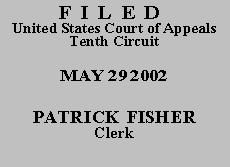

| UNITED STATES OF AMERICA,
Plaintiff - Appellee, v. MALCOM DEROME MCGEE, also known as Malik, also known as Mike McGee, Defendant - Appellant. |
|
Thomas D. McCormick, Oklahoma City, Oklahoma, for Defendant-Appellant.
David E. O'Meilia, United States Attorney, Robert T. Raley, Assistant United States Attorney, Tulsa, Oklahoma, for Plaintiff-Appellee.
The primary witness against Mr. McGee was Ramona Hampton. She testified that after she told Mr. McGee she was going to take a bus from California to Washington, D.C., he insisted upon driving her to the bus station. "Slim" accompanied them. At the station, Mr. McGee told Ms. Hampton to leave her luggage in the car while she and Mr. McGee went into the station to purchase her ticket. When they came back to the car to retrieve her luggage, she realized her bag was noticeably heavier and it was locked. She asked what had been placed in it, but Mr. McGee told her she did not want to know and that she would not be able to get into the bag during the three-day trip.
When Ms. Hampton reached Tulsa, Oklahoma, she was becoming ill from an odor emanating from the bag and got off the bus. Upon returning to the bus, she was approached by a Tulsa police officer. She consented to a search of the bag, at which time the PCP was discovered. She agreed to cooperate with law enforcement officials and made a series of seven telephone calls to Mr. McGee, all of which were monitored and recorded. Mr. McGee instructed Ms. Hampton to obtain a motel room and to wait for his arrival. When he arrived, he took possession of the substance he believed to be the PCP and was arrested.
Mr. McGee contends his conviction for causing another to unlawfully possess PCP with intent to distribute it cannot stand because Ms. Hampton did not know she was carrying PCP and therefore lacked the intent to distribute it. Mr. McGee is incorrect.
The underlying § 841(a)(1) conviction required the government to prove that Mr. McGee "knowingly or intentionally" possessed with the intent to distribute PCP. Under 18 U.S.C. § 2(b), a defendant who "willfully causes an act to be done which if directly performed by him or another would be an offense against the United States, is punishable as a principal." To obtain a conviction under § 2(b), therefore, "the government must prove that the defendant had the mental state necessary to violate the underlying criminal statute and that the defendant 'willfully caused' another to commit the necessary act." United States v. Gabriel, 125 F.3d 89, 99 (2d Cir. 1997). "[T]he government need not prove that someone other than the defendant was guilty of the substantive crime. . . . [T]he intent of the person actually performing the proscribed act is immaterial in a section 2(b) prosecution." United States v. Laurins, 857 F.2d 529, 535 (9th Cir. 1988) (quotation omitted); see also United States v. Levine, 457 F.2d 1186, 1188-89 (10th Cir. 1972) ("The innocence of the agent does not diminish the principal's guilt."); United States v. Dodd, 43 F.3d 759, 762-63 (1st Cir. 1995) (defendant may be convicted under § 2(b) even though person who committed substantive act lacked criminal intent); United States v. Levy, 969 F.2d 136, 141 (5th Cir. 1992) (§ 2(b) does not require shared criminal intent; only defendant charged need have criminal intent, individual whom defendant caused to perform act may be entirely innocent).
Whether the evidence is sufficient to establish that Mr. McGee had the requisite intent is a question we review de novo, "viewing the evidence in the light most favorable to the government . . . ." United States v. Hien Van Tieu, 279 F.3d 917, 921 (10th Cir. 2002). The jury in this case could reasonably have concluded that after Mr. McGee retook possession of the PCP in Washington as planned, he intended to distribute it. The evidence was clearly sufficient to show that Mr. McGee knowingly caused an innocent person to possess PCP with the intent to distribute it, in violation of 21 U.S.C. §§ 841(a)(1) and 18 U.S.C. § 2(b).
With respect to his sentence, Mr. McGee was indicted and convicted under 21 U.S.C. § 843(b) of only one count of using a telephone to facilitate the commission of the § 841(a)(1) felony. A violation of § 843(b) has a maximum statutory sentence of eight years. Contrary to the indictment, the revised presentence investigation report (PSI) treated Count 3 as having charged one violation for each of the seven telephone calls Mr. McGee made to Ms. Hampton. Relying on the revised PSI, the district court sentenced Mr. McGee for seven convictions, imposing eight-year sentences with respect to each telephone call for a total of fifty-six years.
"We review the district court's factual findings regarding sentencing for clear error and review its legal interpretation of the Sentencing Guidelines de novo." United States v. Arevalo, 242 F.3d 925, 927 (10th Cir. 2001). Mr. McGee argues, and the government agrees, that the maximum possible sentence on Count 3 is eight years because the indictment charged Mr. McGee with only one violation of § 843(b). The revised PSI incorrectly assessed seven violations of the statute and the district court sentenced Mr. McGee accordingly. Consequently, we reverse the sentence imposed by the district court and remand for resentencing on Count 3.
In sum, we AFFIRM the judgment of the district court as to Count 2. We REVERSE the judgment as to Count 3 and REMAND for resentencing in accordance with this opinion.
1. After examining the briefs and appellate record, this panel has determined unanimously to grant the parties' request for a decision on the briefs without oral argument. See Fed. R. App. P. 34(f); 10th Cir. R. 34.1(G). The case is therefore ordered submitted without oral argument.